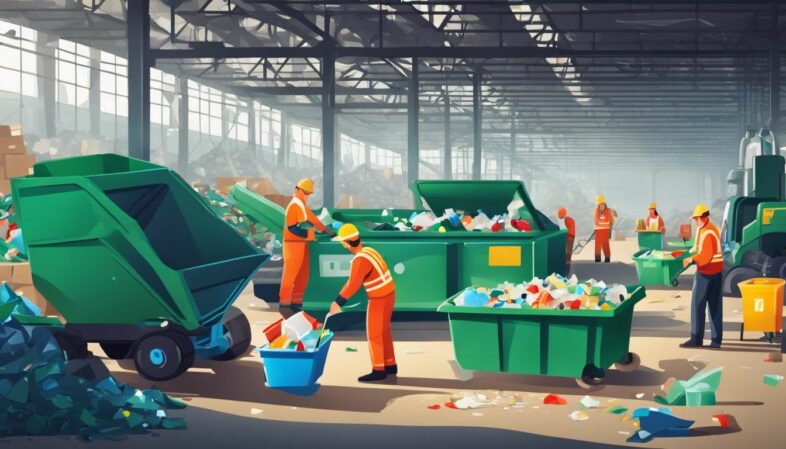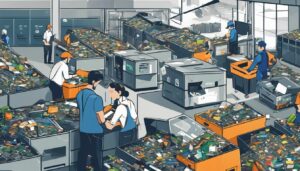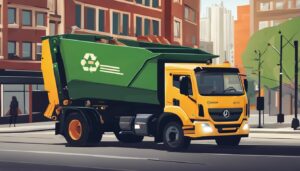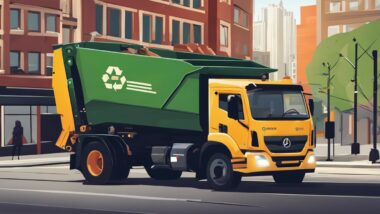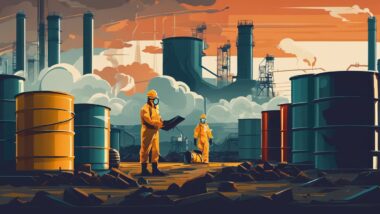Plastic recycling in the UK is a hot topic. The country recycles 46.2% of its plastic, but it wants to do more by hitting 50% by 2020. The leading plastic recycling UK companies know what to do and every piece of plastic has a resin code showing how easy it is to recycle—the lower, the better.
The positives:
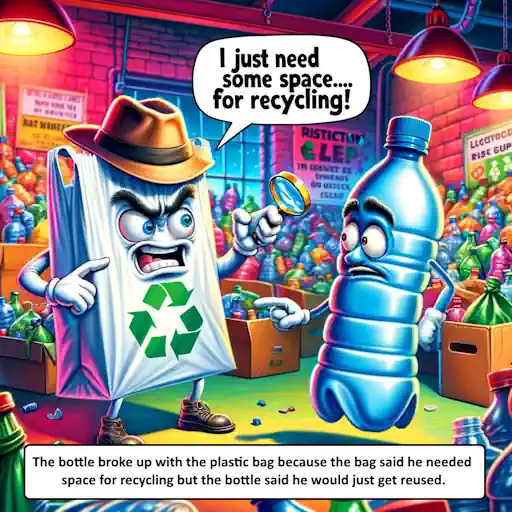 The UK government has created a great financial incentive to recycle plastic. Companies now face a new Plastic Packaging Tax if they use packaging with less than 30% recycled stuff; this has already raised £270 million! Big players like Nestlé are stepping up, investing in plants that can handle hard-to-recycle plastics, and aiming for all their packaging to be recyclable by 2025.
The UK government has created a great financial incentive to recycle plastic. Companies now face a new Plastic Packaging Tax if they use packaging with less than 30% recycled stuff; this has already raised £270 million! Big players like Nestlé are stepping up, investing in plants that can handle hard-to-recycle plastics, and aiming for all their packaging to be recyclable by 2025.
The negatives:
However, not enough sorted waste makes meeting these new rules tough. Firms like ReNew ELP lead the charge as the UK's top plastic resin recyclers, helping boost local efforts to turn old plastics into new ones.
With less than half our total waste being recycled at home and much going abroad due to few facilities, there's a whole work still work to do—especially with coloured plastics which are harder to recycle compared to clear ones.
This article will uncover top UK companies making waves in turning old plastic into new treasures and look ahead at what's next for Britain’s recycling game. Let's explore how these pioneers are shaping the future of reusable materials!
Key Takeaways
- UK businesses recycle 46.2% of plastic, aiming to improve this rate.
- Nestlé invests in recycling difficult plastics and plans for all packaging to be recyclable by 2025.
- ReNew ELP uses advanced technology to turn hard-to-recycle plastics into oils and chemicals.
- The UK Plastic Packaging Tax encourages the use of recycled materials in manufacturing.
- New technologies and policies are leading the UK towards a future with more sustainable waste management.
The Current State of Plastic Recycling in the UK
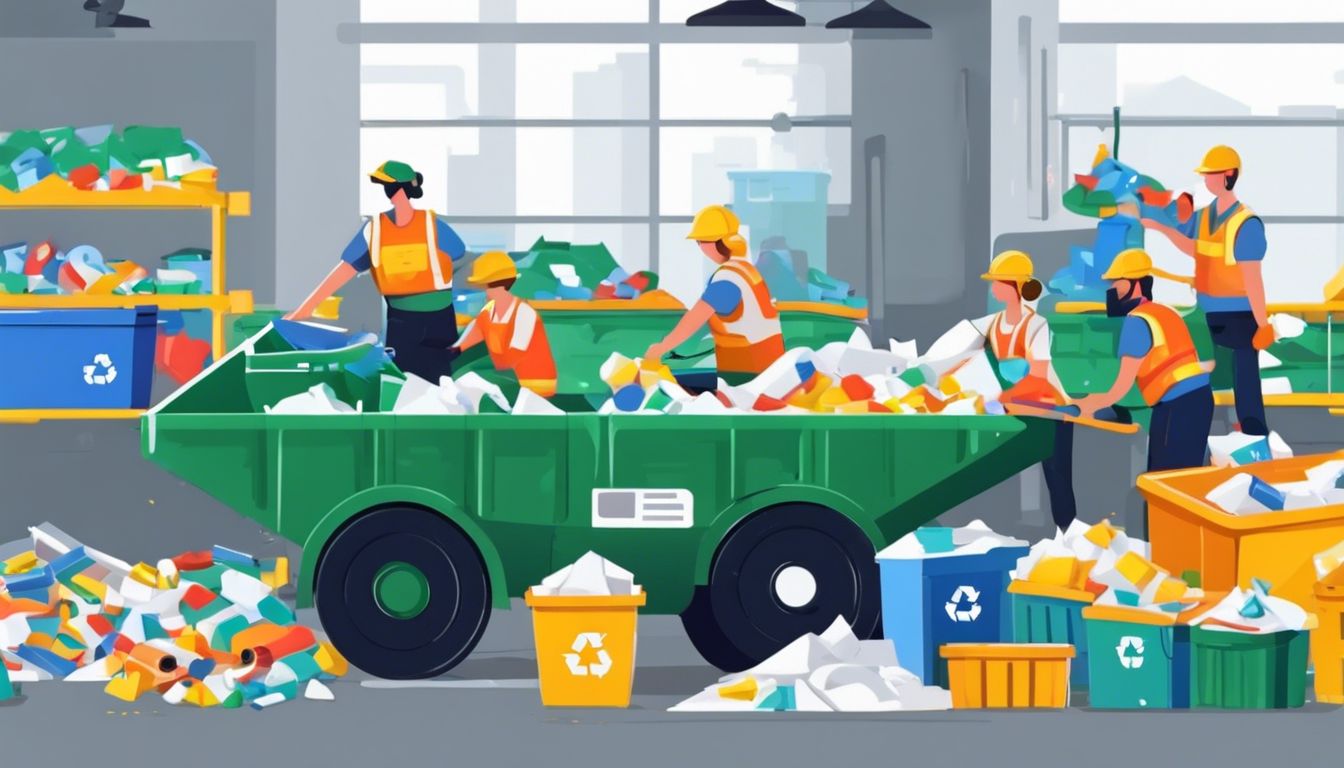 Plastic recycling in the UK has hit a rate of 46.2%, but we still have work to do. Less than half of our waste gets recycled or recovered. This means lots of plastic isn't making it back into the circular economy.
Plastic recycling in the UK has hit a rate of 46.2%, but we still have work to do. Less than half of our waste gets recycled or recovered. This means lots of plastic isn't making it back into the circular economy.
We're not just missing out on turning waste into resources, but also falling short of our environmental goals.
Our current efforts are not enough to stop valuable materials from ending up in landfills or being burned for energy. It's clear that we need more action and better ways to manage plastic waste if we want to get serious about resource recovery and cutting down carbon emissions from plastics.
With new challenges ahead, let's look at what hurdles recycling faces today and how we can overcome them together. Moving forward, understanding these obstacles is key to creating innovative solutions that will shape the future of plastic recycling in the UK.
The Challenges of Plastic Recycling
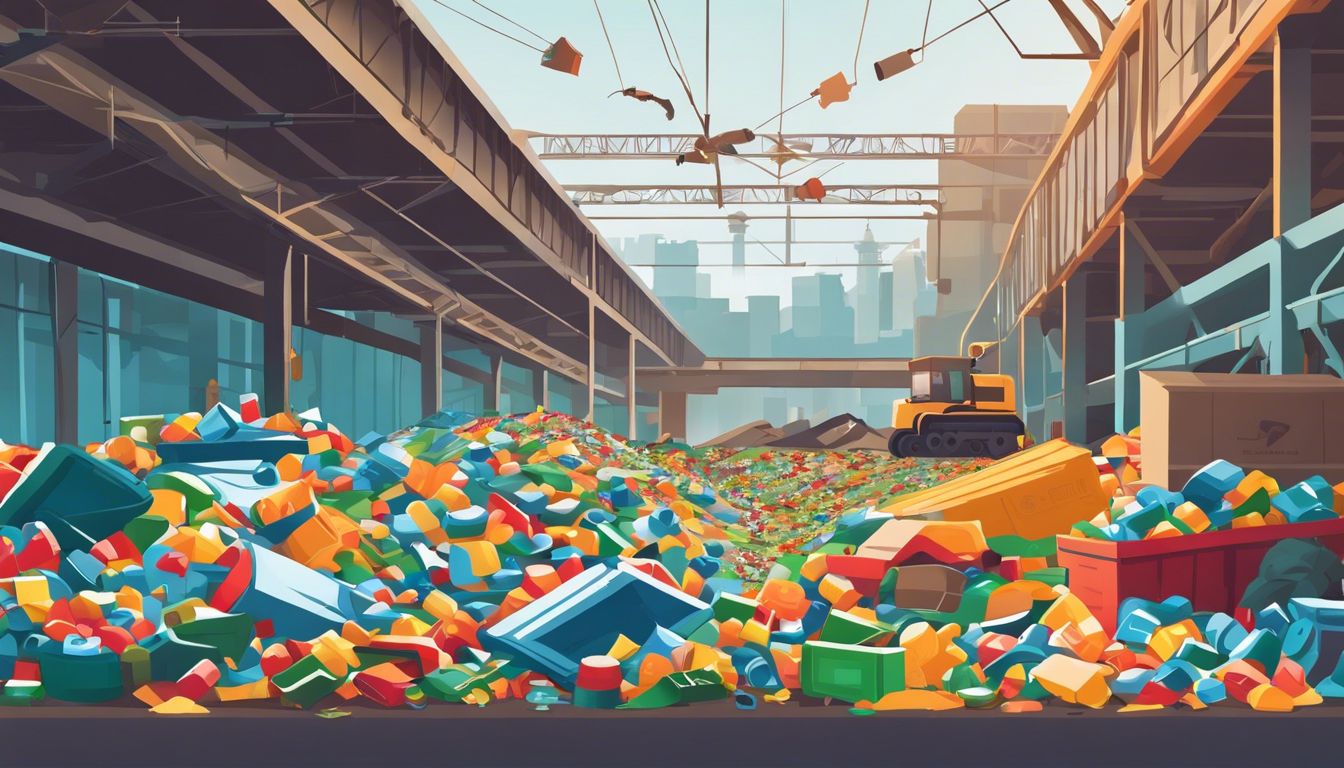
Recycling plastic is tough. Different types need different processes. Sorting them is a big job. Facilities in the UK can't handle it all, so lots get shipped away to other countries.
This isn't great because we lose control over how it's recycled.
One problem is the cost. It takes a lot of money and energy to recycle plastics properly. Plus, not all plastic is made equal—some are harder to recycle than others, like polyethylene (PE) and polypropylene (PP).
These challenges make waste managers' jobs harder as they try to find ways to deal with recycling efficiently.
Now let's explore some innovative solutions that tackle these recycling hurdles head-on.
Innovative Solutions for Plastic Recycling
Amidst the complexities of plastic waste, UK innovators are stepping forward with groundbreaking technologies to revolutionise recycling—unlocking a new chapter in sustainable waste management that is just waiting to be explored.

Nestlé's Investment in Hard-to-Recycle Plastics Plant
Nestlé has stepped up to tackle the challenge of flexible packaging waste. The company poured millions into Impact Recycling's innovative plant in Durham. This facility focuses on transforming tough flexible plastics into reusable pellets.
These pellets can then turn into new products, closing the loop in the recycling chain.
Not resting on its laurels, Nestlé is also revamping its own packaging designs. They aim for simpler, recyclable or reusable formats by 2025. In doing this, they push the boundaries of what we know as ‘recyclable.' And now, let’s look at how Nestlé and other industry leaders like ReNew ELP are making waves in the UK's plastic resin recycling scene.
New Technologies for Processing Hard-to-Recycle Plastics
Exciting breakthroughs are reshaping how we handle tough plastics. New tech is stepping up to tackle the tricky business of recycling materials like polyethylene terephthalate (PET).
It's not just about melting stuff down anymore. We're talking cutting-edge processes, such as pyrolysis and gasification, which can transform these stubborn plastics into syngas or oils – valuable resources that can go back into making new products.
These methods heat plastics without oxygen, breaking them down at a molecular level. Imagine turning what was once waste into something we can use again! This isn't your everyday recycling; it’s a game-changer for managing hard-to-recycle items.
With these technologies in place, companies have powerful tools to meet challenges posed by plastic packaging tax and push the UK closer to its eco-goals.
Leading UK Plastic Resin Recyclers
In the UK, trailblazing companies are redefining plastic resin recycling, offering innovative and sustainable solutions to turn waste into resources—discover who is leading the charge in this pivotal movement.
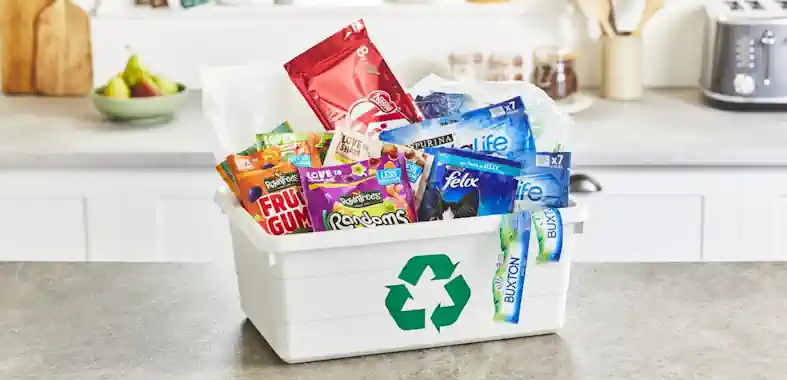
Nestlé
Nestlé steps up to the plate in the fight against plastic waste. This giant has poured millions into Impact Recycling's UK facility, targeting those tough-to-tackle plastics from food and beverage products.
They know that flexible packaging needs a new design to make recycling simpler. With this goal in mind, Nestlé is pushing hard to make sure almost all its packaging is ready for the recycling bin by 2025.
Their actions speak volumes about their commitment to sustainability in the value chain. For company waste managers seeking reliable partners, Nestle's focus on recyclability and investment in recycling infrastructure sets an example.
The firm takes serious strides towards ensuring a circular economy where recycled plastics are not just an afterthought but at the forefront of production processes.
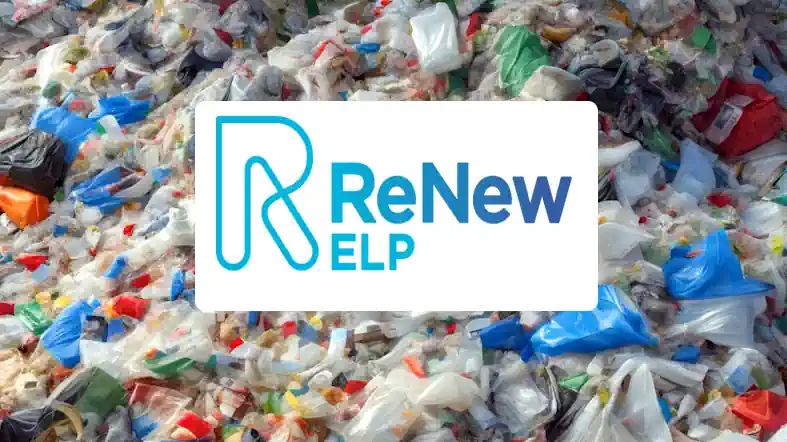
ReNew ELP
While Nestlé focuses on investments, ReNew ELP takes a hands-on approach to revolutionise plastic recycling. This innovative company stands out among UK plastic resin recyclers. They have committed to tackling the challenge of waste plastics head-on.
With cutting-edge technology, ReNew ELP turns hard-to-recycle plastics into valuable resources. They use smart processes that go beyond traditional mechanical recycling methods.
ReNew ELP's techniques are pushing boundaries in the industry. Their method uniquely handles plastic waste that would otherwise end up incinerated or in landfill. The process converts these materials back into useful oils and chemicals, kicking off a new life cycle for old plastics.
By doing so, they play a vital role in reducing the amount of waste shipped overseas and boost local recycling capacity – all crucial steps towards sustainable waste management in the UK.
The Impact of Plastic Packaging Tax on the Recycling Industry
The Plastic Packaging Tax is changing how companies handle waste. With this tax, the UK pushes firms to use more recycled materials in their packaging. Now every piece of plastic with less than 30% recycled content costs more.
This move has led businesses to rethink their packaging strategies. They are seeking out recyclers who can supply them with enough recycled plastics to avoid the tax.
Recycling plants are feeling the pressure too. They need to process more material and improve quality to meet demand. Many recycling plastics operations have started investing in better technology.
This helps them create high-quality recycled materials that manufacturers want to buy. The tax is driving a market for these materials, giving recyclers a boost in business as they become key players in reducing plastic waste and saving resources.

The Future of Plastic Recycling in the UK
UK plastic recycling is changing fast. More companies are investing in advanced technologies to handle hard-to-recycle plastics. Innovations like chemical recycling are breaking new ground, taking waste plastics and turning them into valuable chemicals or oils.
This could mean a big drop in the amount of plastic waste that's burned or buried.
Plans for a cleaner future also include stricter laws. The UK government may soon require all plastic packaging to have at least 30% recycled content. Businesses will need to adapt, finding greener ways to package their products.
With these steps, we'll see less waste and more recycling as part of everyday life in the UK.
Conclusion
The future of plastic recycling in the UK holds promise, with innovative companies leading the charge. Nestlé and ReNew ELP are just a few names transforming waste into valuable resources.
Can you see these changes making a difference in how we manage our waste? With new technologies and government policies like the plastic packaging tax, we're steering towards greener solutions.
Let's embrace this shift together for a cleaner, more sustainable world.

FAQs about plastic recycling UK companies
1. What do UK plastic recycling companies do with the plastics they collect?
UK plastic recycling companies transform plastics from waste into recycled materials. They sort and clean the recyclables, then break them down using processes like thermal conversion or mechanical biological treatment.
2. Can all plastics be recycled by these companies?
Not every type of plastic can be recycled. Items made of PET plastic, high-density polyethylene, and low-density polyethylene are usually recycled, while others like PVC might not be due to their complex composition.
3. Why is it important for UK firms to reuse and recycle plastics?
When UK firms recycle plastics, they reduce waste that could end up in landfills or get combusted – a process that releases harmful methane gas. Additionally, reusing materials helps lower the demand for new resources.
4. How does extended producer responsibility fit into plastic recycling?
Extended producer responsibility (EPR) ensures companies think about a product's life cycle—from creation to disposal—and encourages them to design products that are easier to recycle on kerbside collection, helping with overall waste reduction.
5. What happens if certain plastics can't be reused through regular recycling methods?
For those tough-to-recycle plastics, advanced technologies may turn them into energy via processes such as incineration or break them down chemically in reactors under specific conditions like supercritical steam.
6. Are there benefits beyond the environment for UK businesses that recycle their plastic waste?
Absolutely! Aside from environmental reasons like reducing carbon dioxide emissions and supporting low-carbon initiatives; economically speaking, businesses may also save money on raw materials by incorporating more sustainable practices into their supply chains.
Cost of Commercial Waste Disposal UK: Keeping the Numbers Low: What UK Rubbish Really Costs
Managing rubbish costs money. UK companies know this too well, as they deal with heaps of trash every day. Every year, these businesses create 27.5 million tonnes of commercial waste and 13.6 million tonnes of industrial waste – that's a mountain weighing 41.1 million tonnes! Tossing all that waste can eat up to 4-5% of […]
e-waste recycling companies for businesses: No Digital Dumping. Instead apply the best E-Waste Solutions
E-waste recycling for businesses is a big deal. It's about getting rid of old electronics the right way. In 2016, we had 44.7 million tons of e-waste around the world, but only a bit got recycled properly. That's not good because this stuff has harmful things like mercury and lead that can hurt our planet […]
Comparing US Waste Disposal Companies: Top Landfill Waste Competitors: The Ultimate Eco Disposal Company Showdown
Waste disposal companies play a big role in how we take care of our planet. They handle the trash and recycling from homes, businesses, and cities. Some of the biggest names in this industry are Waste Management, Republic Services, Veolia North America, Rumpke Waste & Recycling, and Casella Waste Systems, Inc. These companies work to […]
Waste Companies Offering Eco-friendly Services – UK's Best Circular Economy Waste Services
Think about how we throw away stuff. Imagine if that waste could help make new things. Well, that's the mission of all waste companies offering eco-friendly services. This idea is called circular economy in waste management. It's like a loop where trash gets a new life instead of hurting our planet. In the UK, some […]
